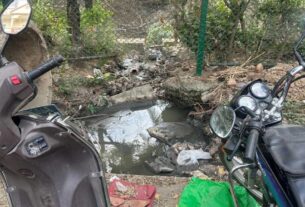Wool production in Karnataka has reduced by 73.5 percent despite an increase in sheep population.
Wool production in the state has been on a decline due to lack of demand, regulated market and awareness. Sheep farmers in the state said that there are no buyers in the market for the wool so they shear off their sheep.
Kalsappa Goravar, a sheep farmer in Gadag district said that he used to sellwool tothe local wool artisan and craftsman who made carpets and rugs. But now, they have shut their shops.
Vijaykumar, a sheep farmer near Bengaluru said that, he mixes the sheared wool with fodder and feeds it to his livestock instead of selling it because he couldn’t find buyers. “The buyers say that the quality of my wool was not what they required. The breed I rear gives short staple wool, but most spinning mills use long staple wool,” he added.
Data released by Reserve Bank of India shows that Karnataka recorded 1742 thousand kilograms of wool production in 2019-2020. Wool production fell from an all-time high of 8,821.440 thousand kg in 2015 to a record low of 1,742.140 thousand kg in 2020.
However, according to the livestock census the sheep population of the state has increased to 11050728 from 9583761 from 2012 to 2019.
Sharanu Tallikeri, Chairman of Karnataka Sheep and Wool Development Corporationsaid that the sheep breeds in Karnataka i.e., Deccani and Mandya produce coarse wool which is mostly used by traditional wool artisans. Now that there is very less demand for rugs (kambali) and carpets made by them the procurement of wool has been affected and farmers don’t have any buyers.
Dr Muralidhar H.T, senior veterinary officer at the of Karnataka Sheep and Wool Development Corporation said that the major drawback for wool in Karnataka is lack of regulated markets and wool processing units. “To overcome this, the department is setting up wool processing units in Ranebennur and Hospet. We are also setting up an online portal for sheep farmers where a proper mechanism to sell wool and meat will be enabled,” he added.
For sheep farmers, meat is the main focus and wool is just the by-product. Goravar said, “By selling meat of one sheep I earn Rs 500-600 while wool 1 kg of wool fetches me only Rs 15-20.”
He explained that the sheep breed in Karnataka is majorly of meat producing nature. Farmers in Karnataka see wool as a waste as they shear in very small quantities because they own less sheep.
However, the department is trying to change this mindset and train farmers on benefits of shearing wool and its uses, he added. “The sheep population of Karnataka is the third largest in the country. We want to leverage this to increase our wool production as well and we are taking steps towards it with various initiatives and also getting help from Central Wool Development Board,” he further said.
In Karnataka, Deccani breed and Mandya breed of sheep produce wool. Mandya breed gives coarse quality wool of low grade used in rugs. Deccani breed’s wool yield is around 750-800g /year with 50% dressing percentage. In ruralareas good quality blankets, muffler, sweater and short caps are prepared from the wool of this breed of sheep.
Karnataka is said to be the third highest wool producing state after Rajasthan with average production of 8821.4 thousand kgs. Karnataka is one of India’s most significant cattle. It adds to the sheep and goat population of the country roughly seven percent. Tumkur district has the highest population of sheep with 10.68 lakh while Udupi district has the lowest number of sheep.




